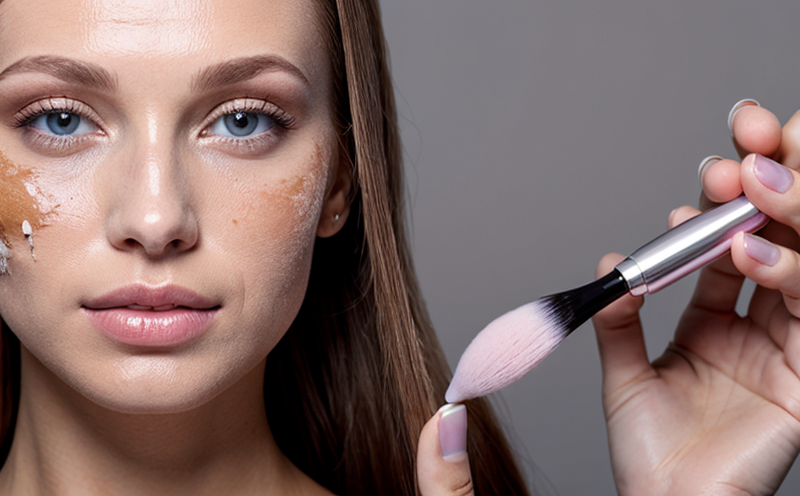GMP Auditing and Certification Testing in Cosmetics
Good Manufacturing Practice (GMP) auditing and certification testing are critical components of ensuring quality, safety, and compliance within the cosmetics industry. GMP is a global standard that outlines the practices necessary to help ensure product quality through appropriate design, installation, equipment, training, and monitoring.
In the context of cosmetics manufacturing, GMP audits and certifications focus on several key areas:
- Facility cleanliness and hygiene
- Equipment maintenance and calibration
- Staff training and qualification
- Process control and documentation
- Supply chain management and supplier quality assurance
- Product testing and release criteria
The International Organization for Standardization (ISO) provides a framework that many regulatory bodies use to evaluate compliance with GMP standards. The ISO 9001:2015 standard, specifically, emphasizes the importance of continuous improvement within an organization's quality management system.
For cosmetics manufacturers, obtaining a GMP certification not only ensures adherence to regulatory requirements but also enhances consumer confidence and trust in the brand. This certification is recognized globally and can be a significant competitive advantage, especially when entering new markets or expanding existing ones.
The audit process typically involves:
- Review of documented procedures
- Inspection of manufacturing facilities
- Evaluation of quality control processes
- Testing of raw materials and finished products
- Assessment of supplier relationships
- Verification of training protocols
During these audits, laboratories use advanced analytical instruments such as high-performance liquid chromatography (HPLC), Fourier transform infrared spectroscopy (FTIR), and mass spectrometry to ensure that all cosmetic products meet the required standards for purity, potency, and stability.
The certification process can be rigorous and may involve multiple rounds of testing. Compliance officers and quality managers must work closely with external auditors to address any deficiencies identified during the audit. This collaborative approach helps to maintain high-quality standards throughout the entire manufacturing process.
Once a manufacturer has successfully completed an audit, they are awarded a certificate that validates their adherence to GMP guidelines. This certification is typically valid for three years and must be renewed periodically to ensure ongoing compliance.
Benefits
The benefits of obtaining GMP auditing and certification testing in cosmetics extend beyond mere compliance with regulatory requirements. These include:
- Enhanced Consumer Trust: GMP certification reassures consumers about the safety and quality of cosmetic products.
- Increased Market Access: Many international markets require GMP certification for entry, making it essential for global expansion.
- Improved Product Quality: Rigorous testing ensures that all products meet strict standards for purity and effectiveness.
- Streamlined Regulatory Compliance: Regular audits help manufacturers stay up-to-date with changing regulations and requirements.
- Enhanced Brand Reputation: GMP certification can significantly enhance a brand's reputation, making it more attractive to consumers and investors alike.
- Increased Efficiency: By identifying areas for improvement during audits, manufacturers can streamline their operations and reduce waste.
These benefits are not only important for established brands but also crucial for startups looking to enter the competitive cosmetics market. GMP certification provides a clear pathway to success by ensuring that all aspects of production meet stringent international standards.
In summary, obtaining GMP auditing and certification testing in cosmetics offers numerous advantages that can significantly impact both the short-term and long-term success of any cosmetic manufacturer.
International Acceptance and Recognition
GMP auditing and certification are widely recognized across various international markets. Regulatory bodies around the world, including those in Europe (EMA), the United States (FDA), and Asia-Pacific countries, require GMP compliance for cosmetic products.
The European Medicines Agency (EMA) specifically mandates that all cosmetics sold within the European Union must comply with the applicable sections of the EU GMP guidelines. Similarly, the U.S. Food and Drug Administration (FDA) enforces strict GMP regulations to ensure that cosmetic products are safe and properly manufactured.
In Asia-Pacific regions like China, Japan, and South Korea, GMP certification is also a prerequisite for market entry. For instance, the Chinese National Medical Products Administration (NMPA) requires international cosmetics brands to undergo GMP inspections before approval for sale in China.
The global acceptance of GMP standards ensures that manufacturers adhere to consistent quality practices regardless of their location. This uniformity helps protect consumers worldwide and fosters trust in the cosmetic industry as a whole.
Furthermore, obtaining GMP certification can facilitate smoother interactions with regulatory authorities during inspections and audits. It demonstrates a commitment to high-quality manufacturing processes and transparent supply chains, which are vital for maintaining good standing in international markets.
Competitive Advantage and Market Impact
Obtaining GMP auditing and certification testing in cosmetics offers significant competitive advantages that can positively impact market performance:
- Market Differentiation: Brands with GMP certification stand out from competitors who may not meet the same stringent standards.
- Better Product Safety: Consumers are increasingly concerned about product safety. GMP certification assures them that manufacturers follow strict protocols to minimize risks associated with cosmetic use.
- Enhanced Reputation: A strong reputation is essential in building brand loyalty. GMP certification contributes to a positive image, which can attract more customers and improve overall market share.
- Increased Sales: In markets where GMP compliance is mandatory, having this certification can lead to increased sales as consumers prefer brands that meet regulatory requirements.
- Better Supplier Relationships: By demonstrating a commitment to quality through GMP audits and certifications, manufacturers can build stronger relationships with suppliers and other industry stakeholders.
- Regulatory Compliance: Staying compliant with global regulations enhances the brand’s reputation and reduces the risk of legal challenges or sanctions.
The impact on market performance is substantial. Brands that invest in GMP certification often experience higher customer satisfaction levels, leading to greater loyalty and repeat purchases. This, in turn, contributes to sustained growth and profitability in competitive markets.
In conclusion, the benefits of obtaining GMP auditing and certification testing extend far beyond regulatory compliance; they provide a robust foundation for building a successful cosmetics business that can thrive in both domestic and international markets.





